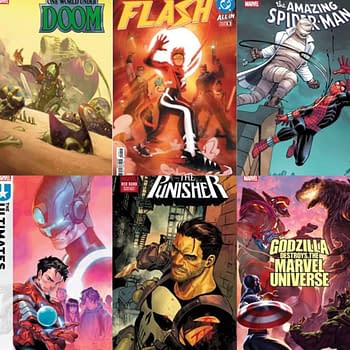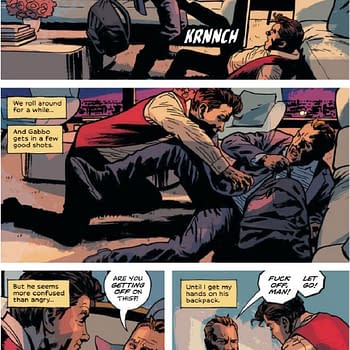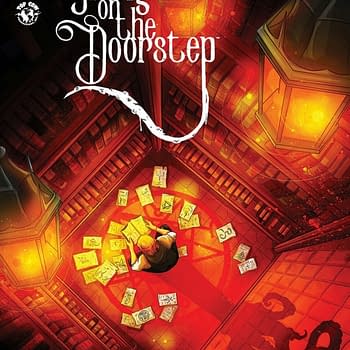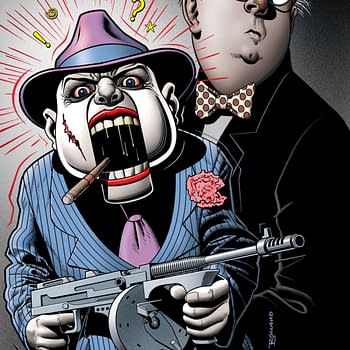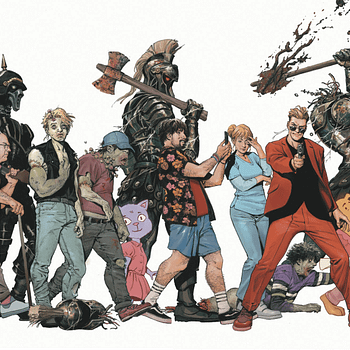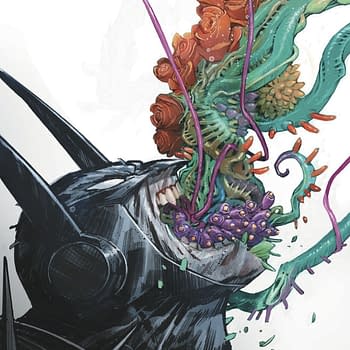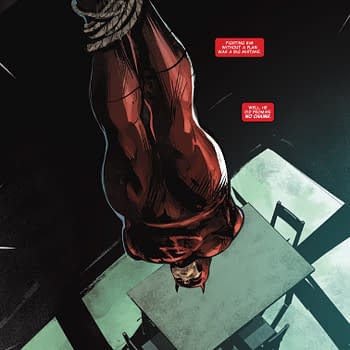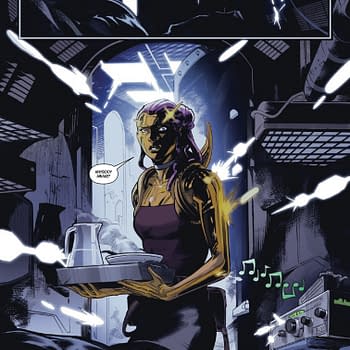Posted in: Comics, Conventions, WonderCon | Tagged:
Marvel's Diversity Under Academic Scrutiny at WonderCon's Comics Arts Conference
Russ Dobler wrote for WonderCon for Bleeding Cool,
"I'm something of a token in the industry," David Walker, writer of the Marvel comics Power Man and Iron Fist and Nighthawk told the sparse but attentive crowd at WonderCon 2017's Comics Arts Conference. "I get that," he said.
Walker said he likes writing African-American characters, but he doesn't want to be pigeonholed. His Hawkeye-led Occupy Avengers came about when Walker asked that his next book not have "Black" or "Night" in the title, and his inclusion of Native American teenagers from Red Wolf's reservation was a further step toward overall representation.
"Everybody deserves to see themselves," Walker said.

Besides writing comics, Walker also teaches at Portland State College, so his inclusion in the Comics Arts Conference was only natural. Begun at San Diego Comic Con by Peter Coogan and Randy Duncan 25 years ago, the conference is meant to examine the comics medium and how we interact with it more critically than in the coming attraction swagfests of typical convention panels.

Diversity was a hot-button subject on the first day of the Conference, as another of the three panels also touched on race. Southern Illinois University's Johnathan Flowers spoke of how feminists and critics of comics' depiction of marginalized groups can be characterized as "killjoys," even when they have legitimate concerns. Flowers himself related how he felt dissociated from Miles Morales when the character said he didn't want to be known as "the black Spider-Man," and warned that a white writer like Brain Michael Bendis penning that statement can delegitimize the feelings of black youth who do see it as something to be proud of.
Gender became the focus in a panel called "President Bitch," referring to the "intersectional feminism" of Kelly Sue DeConnick's Image series, Planet Bitch, as presented by UC Santa Barbara's Maite Urcaregui. It was accompanied by Old Dominion Hall University's David Hall comparing the X-Men character Mystique to gothic horror, as she can be seen as a "woman with a man hidden within her," and Philip Smith of the University of the Bahamas lamenting Wonder Woman's removal as an honorary ambassador of the United Nations, despite the character's noble desire to avoid conflict whenever possible.
"Wonder Woman, I think, is eminently qualified to be in politics," Smith said.

There were some more playful panels over the course of the three days, like a discussion on superhero team-building by Joe Serrano, Edgar Ramos and Rebecca Lee, and an extended chat with vaunted Catwoman scribe Genevieve Valentine. Other talks on "Aesthetics" and "Continuity" drilled down on the nuts and bolts of comics production, and one panel dared to ask, "Do Genre Definitions Limit Comic Storytelling?"
"Comics are not a genre," Comicon.com editor and former Bleeding Cool Editor-in-chief Hannah Means-Shannon wanted to clarify at the start. "Comics are a format."
Ilan Mitchell-Smith of the California State University at Long Beach disagreed, saying that genre is about form (think of Homer's epics), so yes, comics are a genre. Means-Shannon was willing to accept that, but said that splitting hairs like that with non-comics fans might turn them off before they even start reading. Denver Comic Con Director of programming Bruce MacIntosh, whose job it is to split those hairs, had maybe the most cynical yet realistic view of the subject.
"Genre distinction is a lot about tricking people," MacIntosh said.
The Comics Arts Conference takes place at both WonderCon and Comic-Con International every year, with an added poster session in San Diego. Check out the Conference's official website to learn more, or to submit an abstract of your own.






